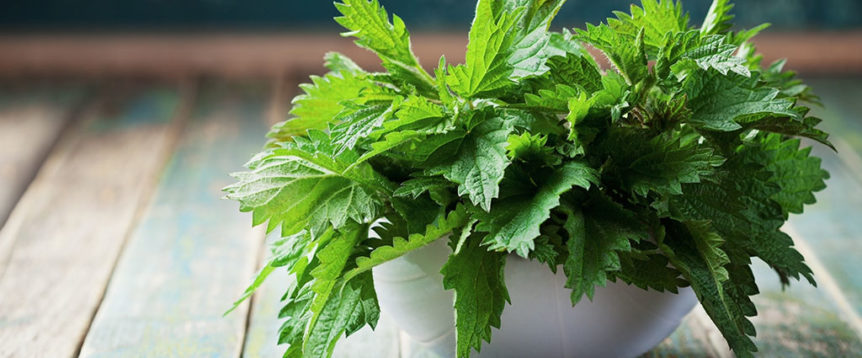› What is it?
Urtica dioica, better known as stinging nettle, is a perennial plant that grows wild all over the world and has a long medicinal and culinary history. One of many nettle varieties, the stinging nettle is so named because its leaves contain tiny, sharp hairs that can cause pain if handled without gloves or eaten raw. Once the leaves have been cooked or dried, the sting goes away, and they are safe to touch and eat.
Nettle leaf can be harvested in the wild from forested areas and even along roadways or you can purchase it dried in bulk or packaged in capsules or tea.
› Health benefits
Stinging nettle contains astringent, anti-inflammatory, diuretic and tonic properties. It has been used medicinally to treat arthritis, eczema and allergies, and to promote lactation, boost the immune system and nourish the blood.
It is high in vitamins A, C and K—an often overlooked but vital nutrient that helps your blood coagulate. In fact, a cup of freshly boiled, steeped or dried stinging nettles supplies nearly 600 percent of the recommended daily value of vitamin K. Nettles also supply B vitamins, which help your body use and make energy, and the minerals calcium, magnesium, potassium and iron; although, they also contain tannins and other iron inhibitors.
› How much?
The Arthritis Foundation suggests taking up to 1,300 mg of stinging nettle as a tea, capsule, tablet, tincture or extract. Otherwise, people can take 1–4 mg per day as a tincture, or they can apply creams directly to the skin.
Be sure to follow relevant directions on product labels, and consult your pharmacist, physician or other healthcare professional before using.
› Dietary supplements
Tea made from the leaves has been used to treat hay fever, diabetes, gout, and arthritis, and fresh stinging leaves are sometimes applied to arthritic joints in a process known as urtification*, which is said to stimulate blood flow. Topical creams have also been developed for joint pain and various skin ailments, including eczema and dandruff.
* Urtification refers to the flogging of the body with the fresh nettle plant. The name urtification comes from the latin name of nettles, Urtica dioica.
Source: The Arthritis Foundation and National Institutes of Health
Please consult your health care provider before making changes to your vitamin/supplement regimen.


